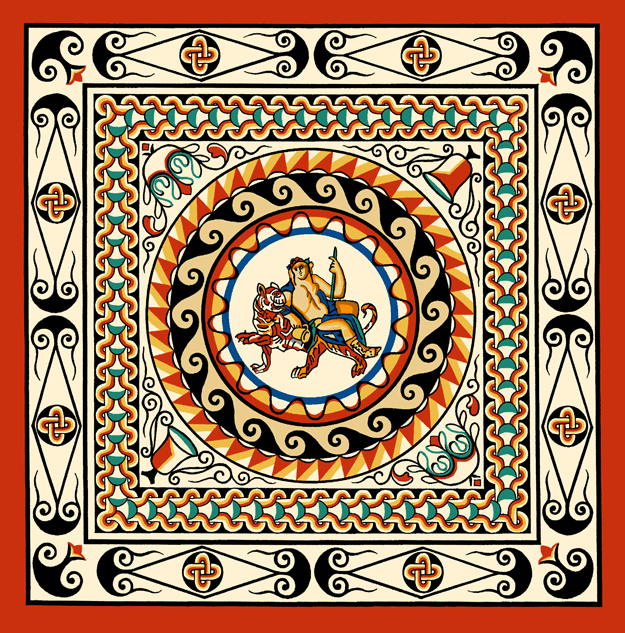|

|
|

Magical Pictures
& Patterns give a Window on the Past
|

- Just like us, the Romans
liked to decorate their homes. They painted pictures on their
walls. They also liked to make their floors pretty, but they
did not have carpets.
- The ultimate way to show
off how rich you were was to have a beautiful mosaic floor
laid in your house, especially
in the triclinium (dining room) where you would entertain your
guests.
- Mosaics were made from
tiny cubes of coloured stone (each side about 1cm across)
called 'tesserae' (plural of 'tessera'). They were put
together like a puzzle to form patterns and pictures covering
the whole floor in a room.
- Black and white patterns
were popular in the 1st century. These became multi-coloured
in the 2nd century.
- The common colours
of stone used were:
- White, black, orange, yellow, cream,
grey and blue
- Red was made from
earthenware tiles
- Green was rarer and
made from glass
- Geometric patterns were
very popular on mosaics. So were pictures of the gods:
- The four seasons
- Orpheus playing his
harp to lots of animals
- Venus 'at her
toilet' (having a wash)
- Bellerophon fighting
the Chimera
- The snake-haired gorgon
called Medusa
- Bacchus on his tiger
was popular for dining rooms
- Neptune, fish and
sea-creatures were popular in Bath
houses
- Big town
houses and country villas
might have lots of mosaics, including in the corridors. Less
important rooms might have plain 'tesselated pavements'.
|
|

